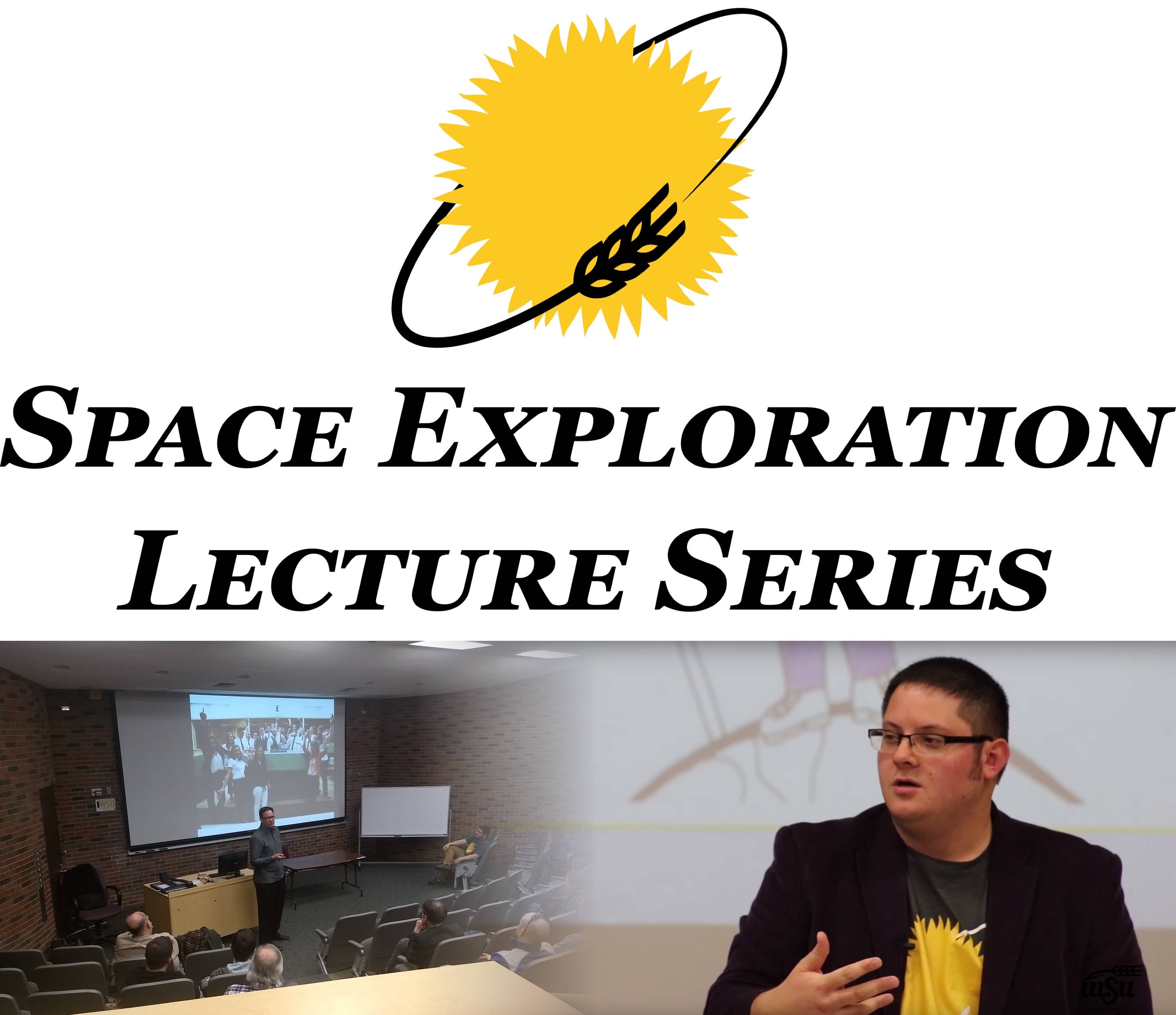
The WSI's Space Exploration Lecture Series is a public forum for WSU faculty, students, and community members to share research and other creative projects related to space exploration. Space Exploration Lectures are generally held on select Thursdays at 3:30 pm. All WSI talks are free and open to the public.
Anyone interested in giving a talk in the series is encouraged to email the WSI Coordinator.
Read below for a list of upcoming and past talks.
Upcoming Talks
Christopher McHugh, "The Legal Battle Over Apollo 11 Samples," Thursday, November 7, 319 RSC (McKay Room), 3:30 pm.
In 1969, the United States met the impossible challenge leveled by President John. F. Kennedy eight years earlier, to land a man on the moon and return him safely to earth. The heroism of the moment culminated in Neil Armstrong’s collection of the first lunar rocks into the Apollo 11 Lunar Sample Contingency bag. Embodying the self-sacrifice, courage, ingenuity and fortitude of an entire nation, the Lunar Contingency bag was the ultimate trophy for the winner of the space race. It was like the Lombardi trophy, the Stanley Cup, and every Olympic Gold Medal, all rolled up into one and multiplied by a thousand...and NASA lost it! This is the story of the Chicago woman who found it almost 50 years later, and her battle with NASA over a national treasure.
Chris McHugh is a litigation attorney at Joseph Hollander & Craft in Kansas City. He represents clients all over the county in all types of litigation matters from criminal cases to $100 million business disputes. Chris was born and raised in Wichita. He graduated from WSU in 1997 and is still involved on campus as a member of the WSU Cohen Honors College Advisory Board.
Past Talks (Current Academic Year)
Michael Michaud, "Extraterrestrial Intelligence: Grand Thought Experiment or Possible Future Discovery?", Thursday, September 5, 3:30 pm, 100 Lindquist Hall.
Michael Michaud will discuss the credibility of the existence of extraterrestrial intelligence (ETI). Scientific advance has sharpened the questions while pushing ETI farther away from us. The Mars story provides a useful focal point. The canals faded away when we could examine the surface at higher resolution. While we know much about the astronomical factors in the Drake Equations, the probability of life and intelligence evolving on alien worlds still is unresolved. There are also behavioral factors: If a technological species discovers us, how would they react? In a mirror image, how will we react if we make such a discovery? Does human history provide us with useful examples? Finally, there is the question of consequences. Will the impact on us be limited to signals of some kind? Or is some form of direct contact possible? How would that change the situation? It may be worth looking at the consequences of very different human societies coming into contact. Is there any way to do rational planning in advance?
Michaud was a Foreign Service Officer for 32 years before turning full time to writing. He is author of Contact With Alien Civilizations, as well as a novel and 35 articles and journal papers on the implications of possible future contact with extraterrestrial intelligence. He also has published extensively on space exploration. His Foreign Service assignments include Acting Deputy Assistant Secretary of State for Science and Technology, Director of the State Department's Office of Advanced Technology, and Counselor for Science, Technology, and Environment at the American embassies in Paris and Tokyo. He led successful negotiations for science and technology cooperation agreements with the Soviet Union and Poland, and played a major role in the negotiation of a new space cooperation agreement with the Soviet Union. He was one of the initiators of U.S.-Soviet anti-satellite arms control negotiations and served on the U.S. delegation.

